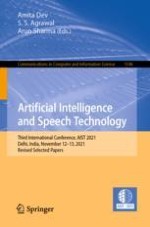2022 | OriginalPaper | Buchkapitel
Applying XGBoost Machine Learning Model to Succor Astronomers Detect Exoplanets in Distant Galaxies
verfasst von : Nidhi Agarwal, Amita Jain, Ayush Gupta, Devendra Kumar Tayal
Erschienen in: Artificial Intelligence and Speech Technology
Aktivieren Sie unsere intelligente Suche, um passende Fachinhalte oder Patente zu finden.
Wählen Sie Textabschnitte aus um mit Künstlicher Intelligenz passenden Patente zu finden. powered by
Markieren Sie Textabschnitte, um KI-gestützt weitere passende Inhalte zu finden. powered by
